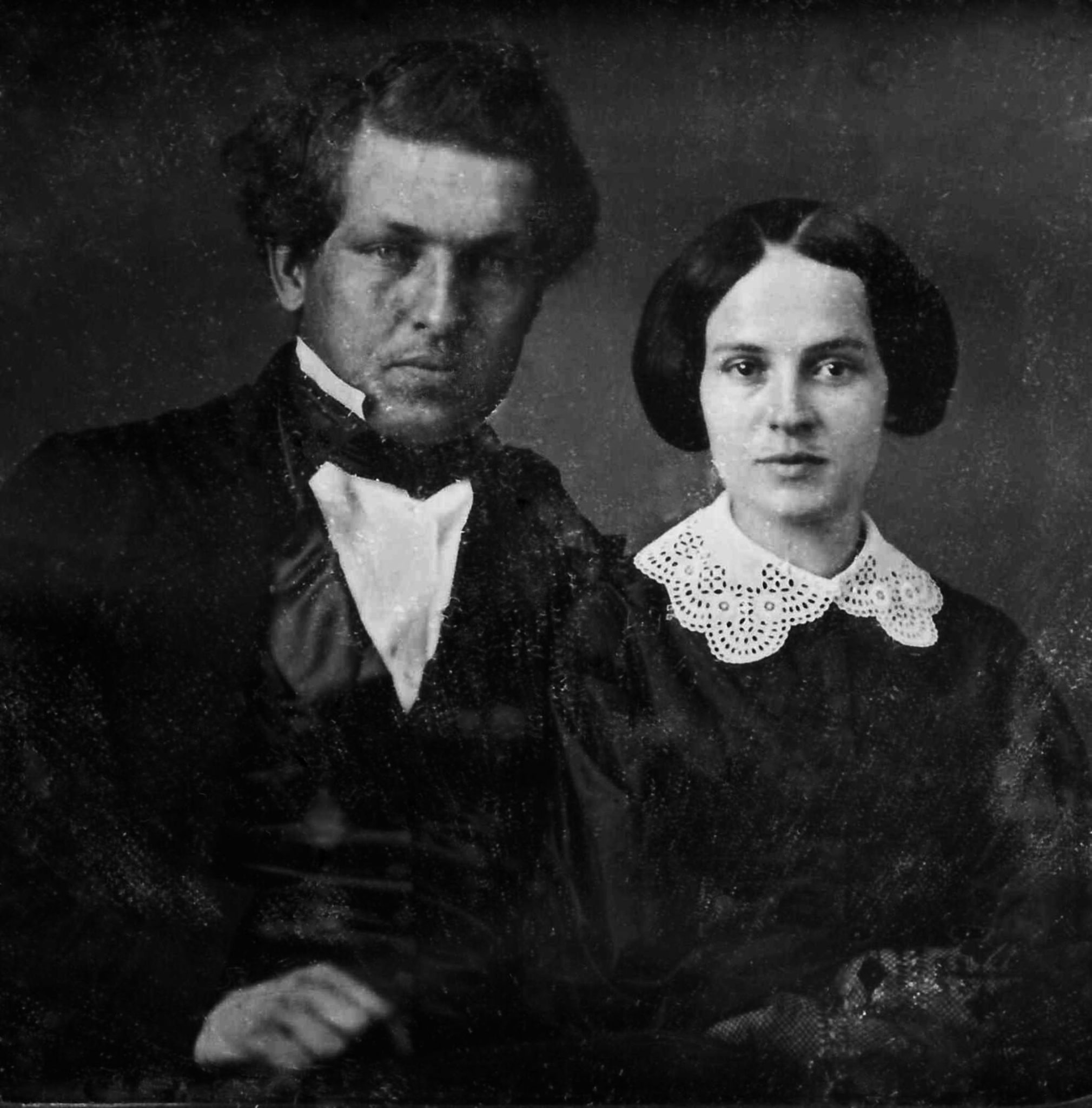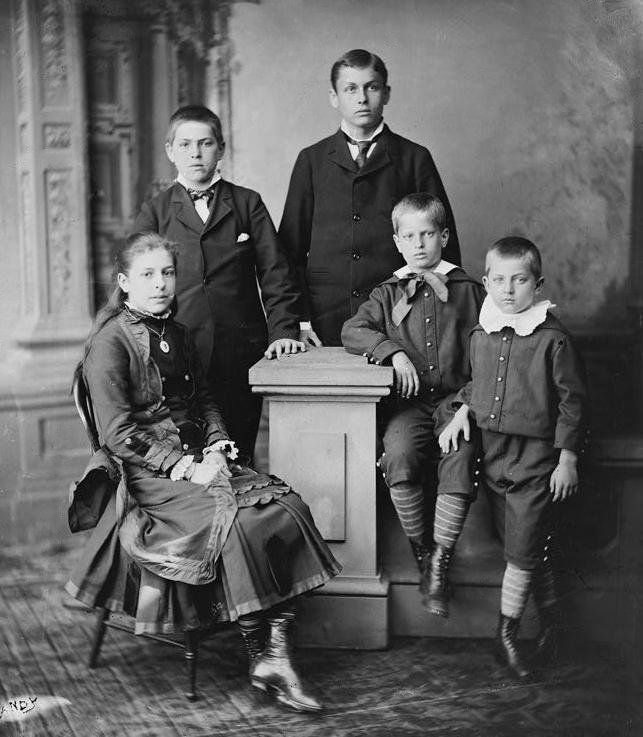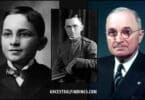Born April 19, 1832, Lucretia Rudolph would one day become the wife of 20th US President James A. Garfield. She was born in Garrettsville, Ohio, the daughter of Zeb Rudolph and Arabella Mason. Zeb was a farmer and a co-founder of the Eclectic Institute at Hiram. Her childhood nickname was “Crete.”
She was a devout member of the Church of Christ from childhood. She was also well-educated, attending the Geauga Seminary and the Eclectic Institute her father co-founded. The Eclectic Institute believed in the equal education of women with men, and she became an accomplished academic who showed high intelligence while there. Lucretia studied classic literature, biology, philosophy, math, science, and history. She also learned to speak Latin, German, Greek, and French. When she graduated, she became a teacher.
Lucretia met James Garfield as a student at the Eclectic Institute, which later became known as Hiram College. He was her teacher when they first encountered each other but were also the same age. James later went away to teach at Williams College, while Lucretia stayed in the area of the Eclectic Institute and taught at schools in both Cleveland and Bayou, Ohio.
James made an impression on her, and when he wanted to correspond with her, Lucretia did not object. James was attracted to her sharp intellect, and they only corresponded with each other a short time before becoming engaged. However, James was not one to be monogamous, and their relationship, even after marriage, was never on solid footing. James took on several lovers during the course of their lives together. Lucretia, in turn, knowing full well about the lovers, continued her studies and teaching, with the idea that she would always earn her own salary to keep her afloat if she ever became single once more. She did not want to have to return to her parents’ house or depend on her father for financial support like many widowed or divorced women of the time period.
Lucretia and James married November 11, 1858, at her parents’ house in Hiram, Ohio. They did not take a honeymoon, but immediately moved in together in Hiram and began life as a married couple.
When James served in the Union Army during the Civil War from 1861 to 1863, they were kept apart by his travels that the war necessitated. However, they remained living together thereafter upon his return. He almost immediately became a Congressman in the House of Representatives after the war and continued his political career from there. He and Lucretia maintained a home in Washington, D.C., as well as one in Mentor, Ohio.
Despite James’s infidelity, the two became about as inseparable as a political couple could be once they moved to Washington, D.C. They went to visit friends together, read books together, traveled together, and ate virtually every meal together. They also joined a locally famous literary society together. Most of their friends were fellow intellectuals, and they enjoyed socializing together with this scholarly group.
During their marriage, Lucretia and James had seven children, five of whom lived past childhood. They lost a two-year-old son and a three-year-old daughter. Four sons and one daughter grew up. All of these remaining children outlived James and Lucretia.
When James was elected president and the family moved into the White House in 1881, they were a happy bunch. Lucretia was not truly interested in taking on the duties of First Lady, but she did so with grace and humility, with a genuine kindness to her personality that made the dinners she hosted at the White House quite popular. She was in the habit of holding receptions at the White House twice a week, and these, too, were highly popular social events to the politicians and citizens of the capital city.

Lucretia advised James on who to make as his cabinet appointments, and her studies in this area
and deep understanding of politics made those suggestions successful ones. She also understood that the White House was a historical building by the time she moved into it and began plans to make it into the cultural center of the city.
It was not her intention to redecorate the White House but to bring a real sense of history to it. To that end, she went to the Library of Congress to do more historical research on the White House, which was, by that time, and 80-year-old building. She wanted all of its rich histories reflected and celebrated in it. However, she contracted malaria before she could begin this project. By the time Lucretia recovered, James had been assassinated, and she was no longer living in the White House.
In fact, she was convalescing at Elberon, a beach resort in New Jersey, when James was shot and killed by Charles Guiteau in July of 1881, just a few short months after they moved into the White House. James had been planning to take the train to visit Lucretia that day, before going on to an event at a college he once attended in Massachusetts.
When Lucretia received word her husband was injured, she raced back to Washington, D.C. via train. The conductor was trying so hard to get her there quickly, the engine broke a piston and the train almost derailed. Lucretia was thrown from her seat, but not injured. She arrived in Washington and went right to James’s bedside, determined to help the doctors heal him. She was willing to do whatever she could do.
James lingered on from his gunshot injury for three months, but ultimately succumbed to it. Lucretia was beside herself with grief. She and her children returned to their home in Ohio. She had been First Lady for less than a year.

At home, she led a private life but a busy one. She devoted much time to organizing James’s papers and records regarding his political career, and a wing for them was added to their house. It eventually became his presidential library.
There was much public sympathy for her and her children after what happened to James, and she lived in financial comfort the rest of her life on a $350,000 trust fund that a wealthy financier raised for them.
Lucretia lived almost four decades beyond James. During that time, she attended events held by President Theodore Roosevelt and became a volunteer for the Red Cross during WWI. She died March 14, 1918, and was buried beside James in an above-ground crypt at the James A. Garfield Memorial in Cleveland, Ohio.






